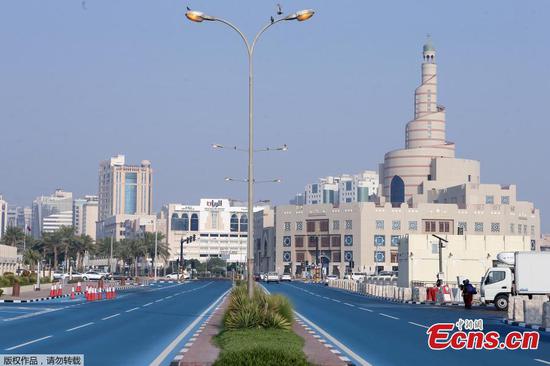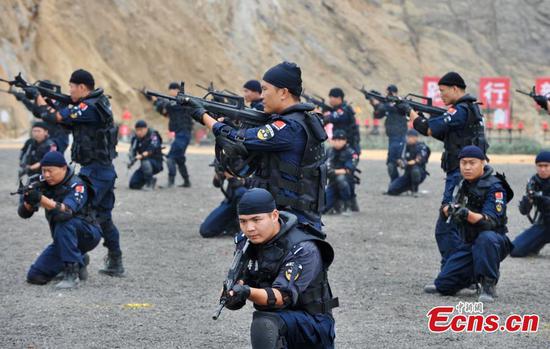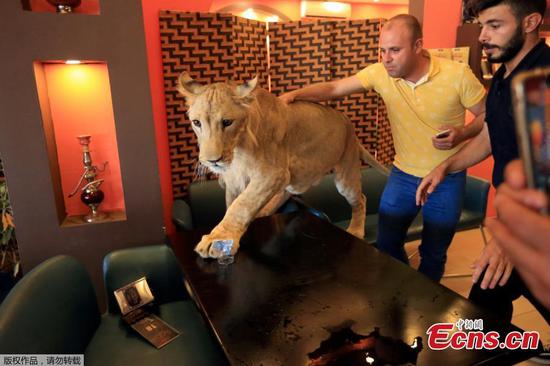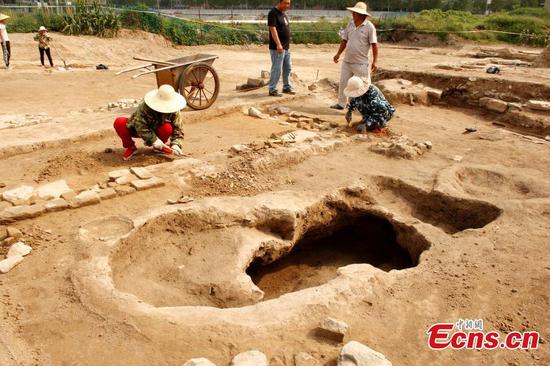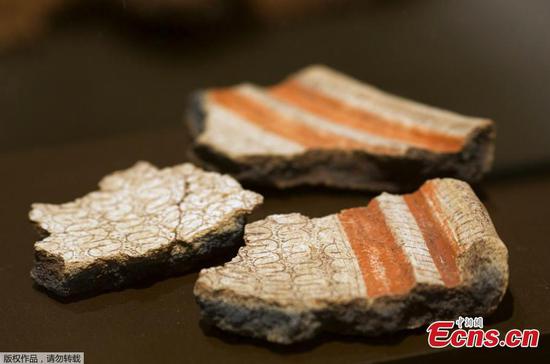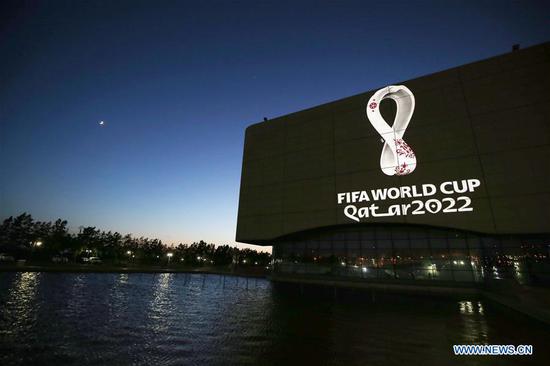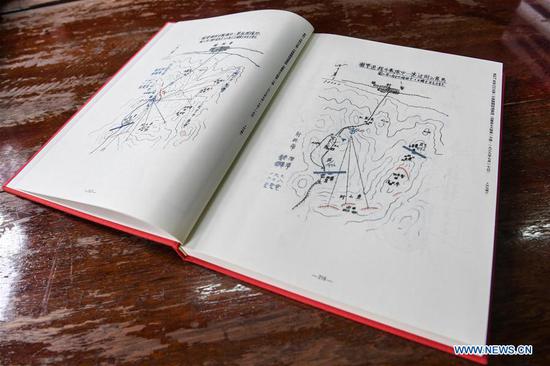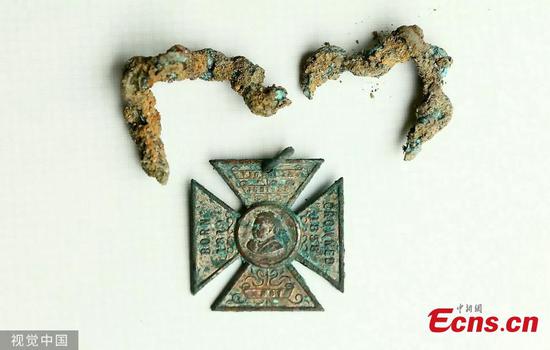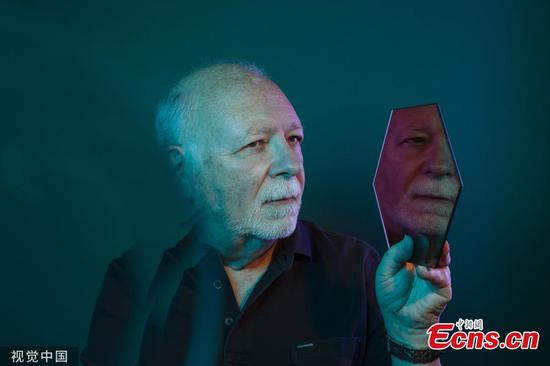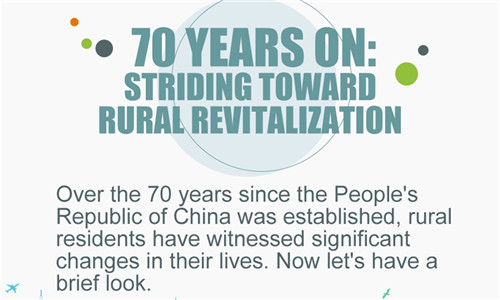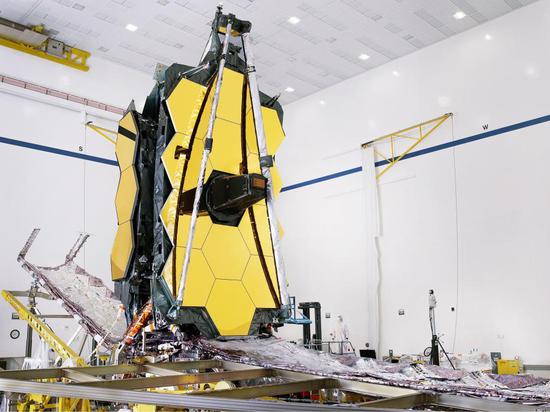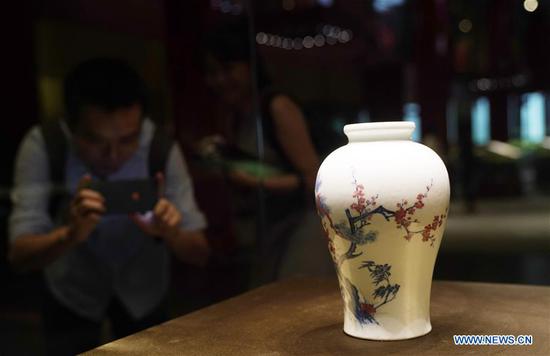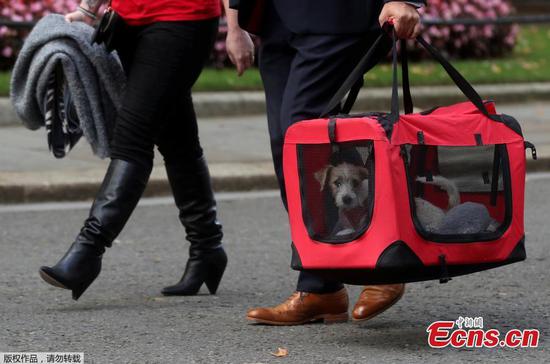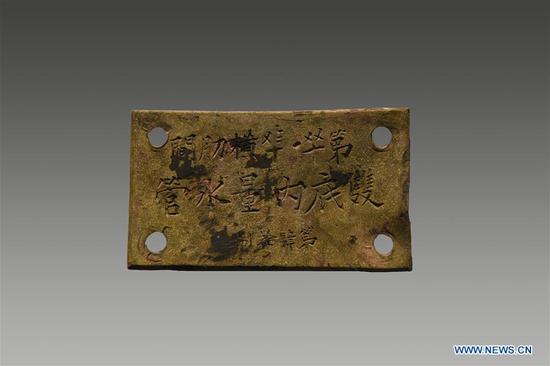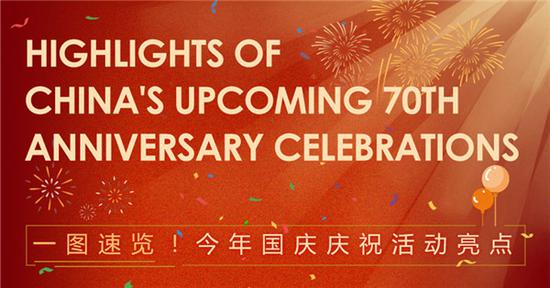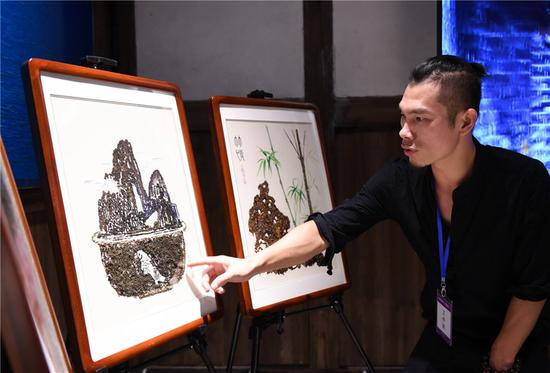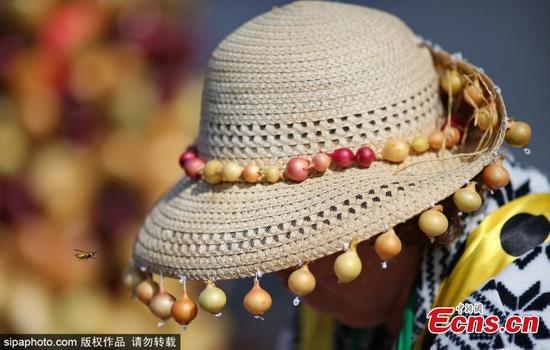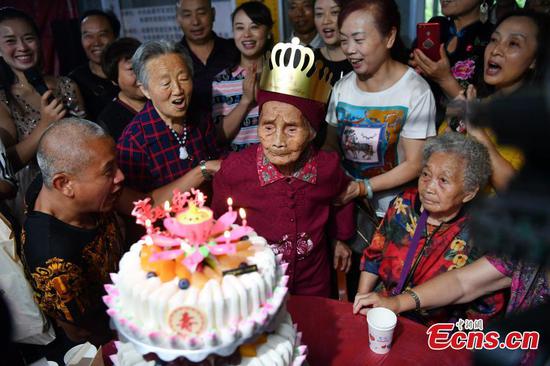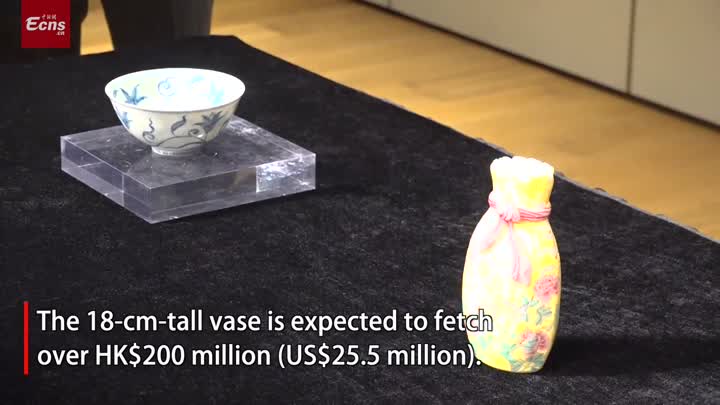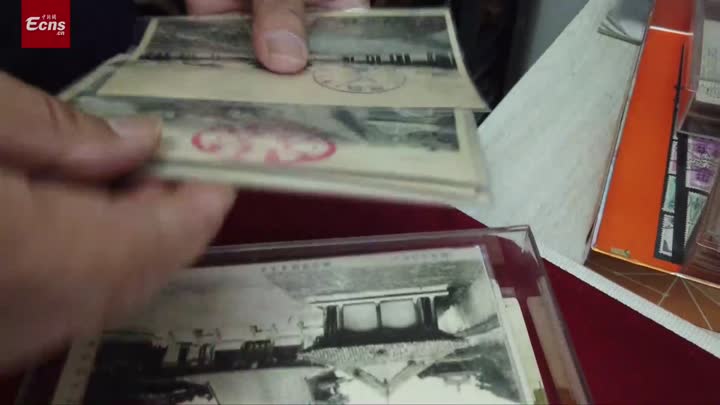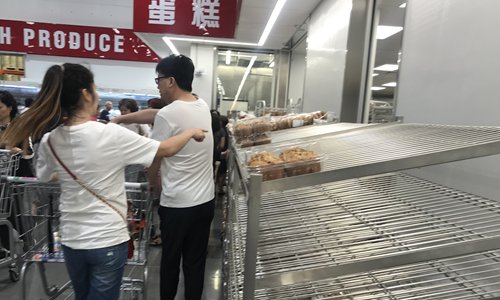
Costco almost sells out its muffins by noon on Wednesday. Chinese buyers stuff their shopping carts with Costco food that they think are worth buying like bakery and roast chicken. (Photo: Xie Jun/GT)
Balance of costs, quality will hold key to success in the market: analysts
One week after the opening of the U.S. supermarket Costco in the Chinese mainland that caused a Black Friday-like sensation in Shanghai, the Global Times visited the Shanghai Costco again and found that its hot streak continues.
But some customers also raised concerns that its products are not "cheap enough", particularly after the supermarket raised the prices of many of its first-day hot sellers, including the liquor Wuliangye wine.
On Wednesday morning, some shoppers brought suitcases to carry their purchases. Some had to wait on line to enter the store, which at some points had up to 4,000 people inside, and the grocery section was especially crowded.
But some pitfalls were also surfacing, with customers complaining that prices weren't as low as they expected and that crowds made shopping uncomfortable.
The Global Times observed that many cheap hot sellers that hit headlines on the supermarket's first business day like the 1,498 yuan ($209) Feitian Moutai and 103,699 yuan Hermes Birkin Handbag (both of which were much lower than the official prices) were no longer sold in the store. The supermarket also raised the prices of some products, such as increasing the price of Wuliangye wine from 919 yuan on the first business day to 1,069 yuan.
One employee at Costco told the Global Times that the Feitian Moutai, which was sold out in just a few hours on the first business day, might be put on the shelves again in the future. "But we are not sure. Its supply is low and hard to guarantee," he said.
One customer surnamed Han told the Global Times that the prices of many items were not as low as she had expected. "For example, the 21.9 yuan egg carton (60 grams) - I've seen them being sold cheaper at other supermarkets," she said.
Another buyer told the Global Times that she decided to cancel her membership as she found that the crowds were too big and the prices were not low enough. There were less than 10 people lining up for refunds at the store.
But there were also buyers who told the Global Times that some items were cheaper than at other markets, such as steak and roast chicken.
Industry analyst Liu Dingding said that whether Costco can offer cheaper prices with reasonable quality is the key to its long-term success.
"In the past, there were also supermarkets that used the membership selling model like Sam's Club, but they didn't get a very warm response from the Chinese market because their products were not cheap enough," Liu said.
But that does not mean that Costco has to slash prices like on the first business day. "The first-day price is just a kind of promotion. I don't think shoppers would take those price levels for granted," he said.
Zhang Yi, CEO of Shenzhen-based iiMedia Research, said that Costco's promise to keep its mark-ups below a certain level, 15 percent according to some overseas reports, assures domestic customers that they are trying to sell as cheaply as possible and that is very attractive to price-sensitive Chinese customers.
"Costco does not need to sell everything at the lowest market price. But as long as it can keep the reputation that it offers a cheaper-than-average price, its appeal to customers will last," Zhang said. He also said that membership might become a mainstream selling model in China's supermarket retailing in the future.
Zhang also noted that low profit margins will be offset by other factors, such as that Costco sells in large volumes and pays low rents because stores are located in the suburbs. He also noted that the membership system gives a big data-like platform for the supermarket to assess the buying habits of each member so it can replenish stock accordingly.










